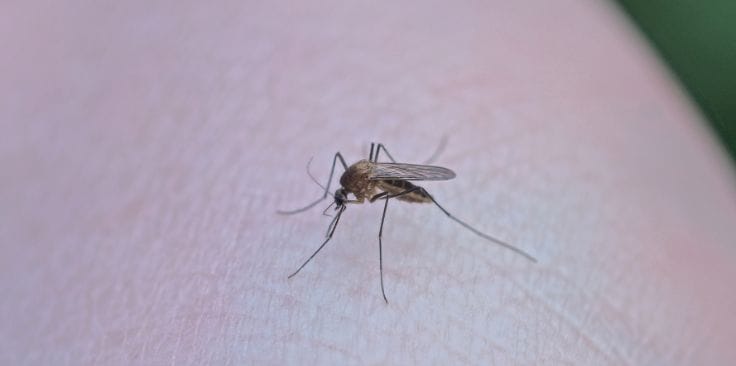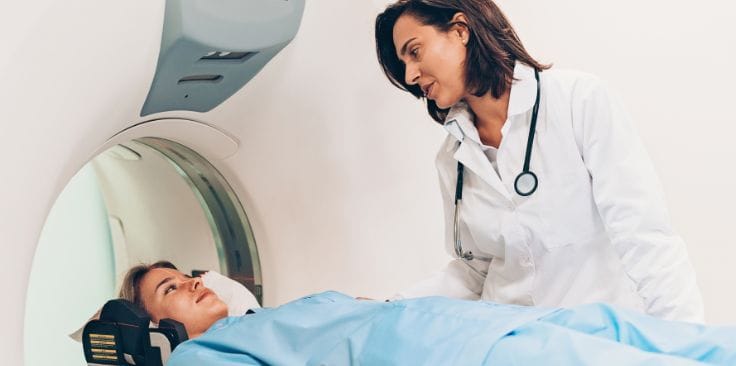What Causes Swelling of the Occipital Lymph Node?
Medically reviewed by our experts


Swelling of the occipital lymph node can occur for various reasons, from minor infections to more complex health conditions. Located at the back of the head near the base of the skull, these small but vital structures form part of your body’s immune defense system. When they become enlarged, it may signal that your body is fighting off an illness or responding to inflammation.
Key Article Findings
- Swollen lymph nodes back of head often indicate your immune system is actively responding to infection or inflammation
- Most cases of occipital node swelling are not serious and resolve with simple home care
- Persistent or severely enlarged occipital lymph nodes warrant professional medical attention

Understanding the Occipital Lymph Node
Occipital lymph nodes are small, bean-shaped structures located at the back of your head, just below the skull. These specialized nodes filter lymphatic fluid from the scalp and back of the head before it returns to the bloodstream. Unlike cervical nodes (neck) or axillary nodes (armpit), occipital nodes specifically monitor the health of your scalp and the back of your head.
When functioning normally, these nodes remain small and are difficult to feel. However, they can enlarge when filtering harmful substances, collecting excess fluid, or responding to nearby inflammation. This natural defense mechanism helps protect your brain and upper spine from potential threats.
Common Causes of Swelling in the Occipital Lymph Node
Swelling of the occipital lymph node typically results from issues affecting the scalp or back of the head. Common causes include:
Scalp Infections
- General bacterial infections of the skin
- Common fungal issues on the scalp
- Hair follicle irritation
Scalp Parasites
- Tiny organisms that cause irritation
- Might lead to scratching and secondary infections
- Often spread through direct contact
Inflammatory Skin Issues
- Flaky, itchy scalp conditions
- Scaly patches on the head
- Often worsened by scratching
External Factors
- Sun exposure on your scalp
- Reactions to hair care products
- Environmental irritants
When these situations develop, occipital nodes enlarge as they work to filter out unwanted substances and process inflammatory signals from affected skin areas.
Home Remedies to Manage Swelling of the Occipital Lymph Node
When dealing with swollen lymph nodes back of head, several home approaches may provide relief:
Heat Application
- Apply warm compresses for 15-20 minutes several times daily
- Gentle heat increases blood flow to the affected area
- May help reduce discomfort and support natural healing
Rest and Recovery
- Ensure adequate sleep and downtime
- Reduce physical activity temporarily
- Allow your body to focus energy on addressing the underlying issue
Hydration
- Drink at least eight glasses of water daily
- Proper hydration supports healthy lymphatic flow
- May help flush unwanted substances and reduce swelling
Gentle Self-Care
- Consider over-the-counter pain relievers as directed
- Try gentle self-massage around (not on) the swollen area
- Explore additional home remedies for swollen lymph nodes for relief
Natural Approaches
- Certain herbs for lymphatic system may provide support
- Anti-inflammatory foods may complement other remedies
- Specialized supplements like Lymph MD contain natural ingredients, known for centuries in traditional medicine, that support healthy lymphatic function and overall wellness
For optimal results, combine these approaches while addressing any underlying causes of the swelling. Consistency with these methods often yields the best outcomes for managing swollen glands behind head.
When to See a Doctor for Occipital Lymph Node Swelling
While many cases of swelling of the occipital lymph node resolve with home care, certain situations warrant professional medical attention:
- Persistent swelling lasting more than two weeks without improvement
- Changes in characteristics – nodes become very firm, fixed in place, or grow painlessly
- Additional symptoms – weight loss, night sweats, fever, or severe headaches
- Emergency signs – difficulty swallowing/breathing, severe pain, or sudden extreme swelling
- For older adults – any new swollen occipital nodes warrant professional evaluation
Each of these situations may indicate underlying issues requiring proper diagnosis and treatment beyond home care approaches.
Conclusion
Understanding swelling of the occipital lymph node helps you respond appropriately to this common condition. While often a normal immune response to minor issues, persistent or severe swelling deserves proper medical evaluation. Combined with professional guidance when needed, home care approaches can help manage discomfort while supporting your body’s natural healing processes.
Most cases of occipital node swelling resolve within 1-2 weeks as the underlying cause heals. Persistent swelling beyond this timeframe warrants medical evaluation to identify potential ongoing issues requiring treatment.
While stress alone typically doesn’t directly cause lymph node swelling, it can weaken immune function, potentially making you more susceptible to infections that do cause swollen glands behind head. Managing stress through relaxation techniques may support overall immune health.
Children often experience swollen occipital lymph nodes due to frequent scalp issues, parasites, or normal responses to common childhood illnesses. Their active immune systems tend to produce more noticeable lymph node enlargement than adults typically experience from similar conditions.
Raypole, C. (2025). Swollen occipital lymph nodes: Causes and treament options. Healthline.
Berry, J. (2024). Swollen occipital lymph node: What to know.
Swollen lymph nodes – UF Health. (n.d.).
Swollen lymph nodes – Diagnosis & treatment – Mayo Clinic. (2024). Mayo Clinic.
Popular Articles
Advertisement. This site offers health, wellness, fitness and nutritional information and is designed for educational purposes only. You should not rely on this information as a substitute for, nor does it replace, professional medical advice, diagnosis, or treatment. If you have any concerns or questions about your health, you should always consult with a physician or other health-care professional. Do not disregard, avoid or delay obtaining medical or health related advice from your health-care professional because of something you may have read on this site. The use of any information provided on this site is solely at your own risk.













